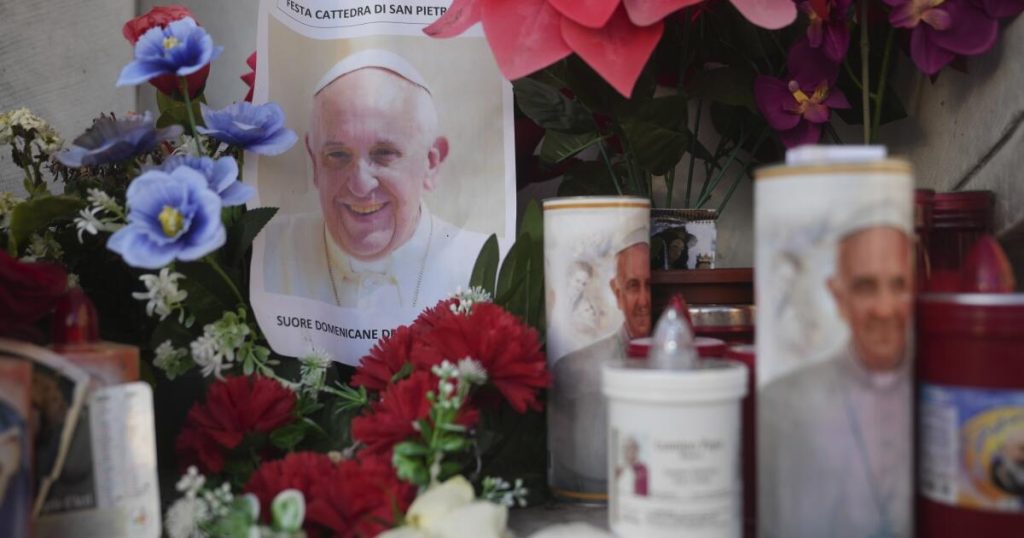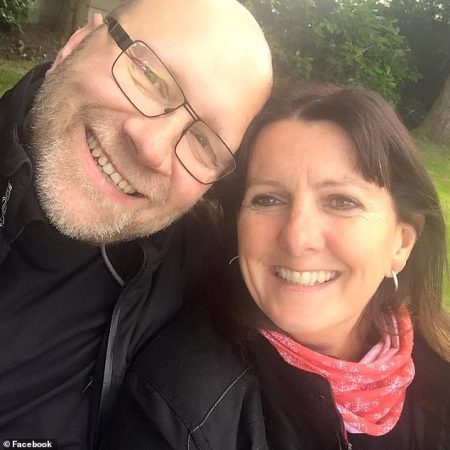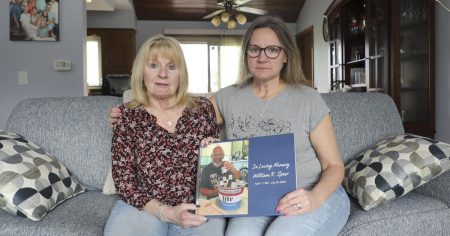Pope Francis, the 88-year-old leader of the Catholic Church, is in critical condition following a prolonged asthmatic respiratory crisis that required high levels of oxygen, the Vatican announced on Saturday. The pope, who has been hospitalized for over a week with pneumonia and a complex lung infection, has also undergone blood transfusions due to low platelet counts linked to anemia. Despite his fragile state, Francis remains alert and was able to spend the day in an armchair, though he is experiencing more pain than the previous day. The Vatican described his prognosis as “reserved,” indicating that his condition is uncertain and requires close monitoring. Doctors have emphasized that Francis is still in grave danger, with the primary concern being the potential onset of sepsis, a severe infection of the blood that can develop as a complication of pneumonia. As of Friday, there were no signs of sepsis, and Francis was responding positively to his medications.
Francis’s health struggles began earlier this month when he was admitted to Rome’s Gemelli Hospital on February 14 after a week-long battle with bronchitis that worsened. Initially diagnosed with a complex viral, bacterial, and fungal respiratory tract infection, Francis later developed pneumonia in both lungs. His medical team prescribed “absolute rest,” a combination of cortisone and antibiotics, and supplemental oxygen as needed. Saturday’s update marked the first time the Vatican referred to Francis experiencing an “asthmatic respiratory crisis of prolonged magnitude,” highlighting the severity of his breathing difficulties. Dr. Sergio Alfieri, the head of medicine and surgery at Gemelli Hospital, underscored the risks, stating that the greatest threat to Francis is the possibility of germs from his respiratory system entering his bloodstream, which could lead to sepsis—a condition that can cause organ failure and death. Alfieri also shared that Francis is aware of the gravity of his situation, with the pope instructing his medical team to convey that he understands he is in danger.
Amid the uncertainty surrounding Francis’s health, the Vatican has moved to address speculation about his potential resignation. Canon law does not provide clear provisions for a pope becoming incapacitated, and while Francis has mentioned writing a resignation letter to be used if he becomes medically unable to govern, there has been no indication that such a step is imminent. Cardinal Pietro Parolin, the Vatican Secretary of State, dismissed rumors of resignation as “useless” and emphasized that the focus should remain on Francis’s recovery. Parolin also denied reports of secret meetings between Vatican officials and the pope, which had fueled speculation about the potential for a resignation. The cardinal noted that while unverified rumors often spread in such situations, there is no evidence of any concerted effort to address the possibility of Francis stepping down. For now, the pope remains fully conscious, alert, and capable of eating and working, albeit in a limited capacity.
Meanwhile, the Vatican is proceeding with its planned events, including a special Holy Year weekend for deacons. Francis fell ill just as the Catholic Church launched its once-every-quarter-century Jubilee celebration, a significant event in the Catholic calendar. While Francis had hoped to participate in the festivities, his health has forced him to miss key moments, including Sunday Mass and his traditional noon blessing. In his absence, the organizer of the Holy Year will lead Sunday’s Mass, and Francis’s blessing will be omitted for the second consecutive weekend. Despite his physical absence, Francis’s presence is deeply felt by the faithful. Luis Arnaldo López Quirindongo, a deacon from Puerto Rico attending the Jubilee celebration, expressed the sentiments of many, saying, “Even though he’s not here, we know he’s here. He’s recovering, but he’s in our hearts and is accompanying us, because our prayers and his go together.”
The Vatican’s efforts to provide regular updates on Francis’s condition reflect the global interest in his well-being. As the spiritual leader of millions of Catholics worldwide, Francis’s health is not only a personal matter but also a subject of widespread concern. His resilience and ability to continue working, even in the face of significant pain and illness, have inspired admiration and prayer from his followers. However, the reality of his advanced age and chronic health conditions, including chronic lung disease, has raised questions about the sustainability of his papacy. While Francis has shown remarkable determination throughout his life and papacy, his current condition serves as a stark reminder of the fragility of human health, even for a spiritual leader who has devoted his life to serving others.
As the Vatican continues to navigate this critical period, the focus remains on Francis’s recovery and the hope for his eventual return to full health. The pope’s ability to remain alert and engaged, even in the midst of serious illness, underscores his indomitable spirit and deep dedication to his faith and mission. While the road ahead remains uncertain, the prayers and support of the global Catholic community continue to surround him, offering strength and comfort during this challenging time. For now, the world waits with bated breath, hoping for the recovery of a leader whose presence has left an indelible mark on the Catholic Church and the world at large.









